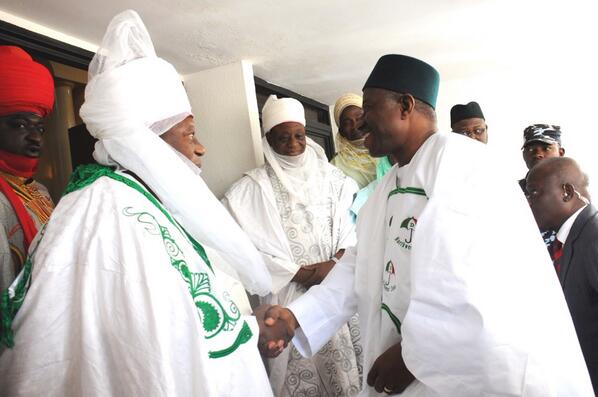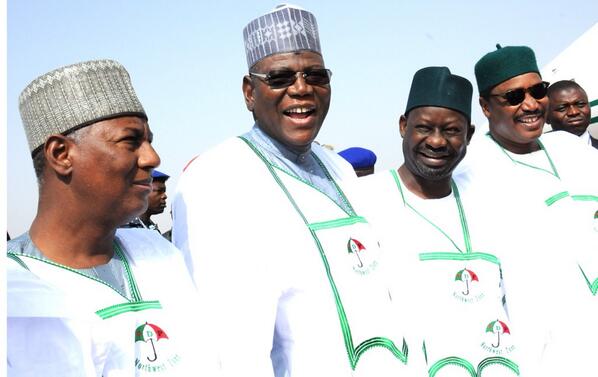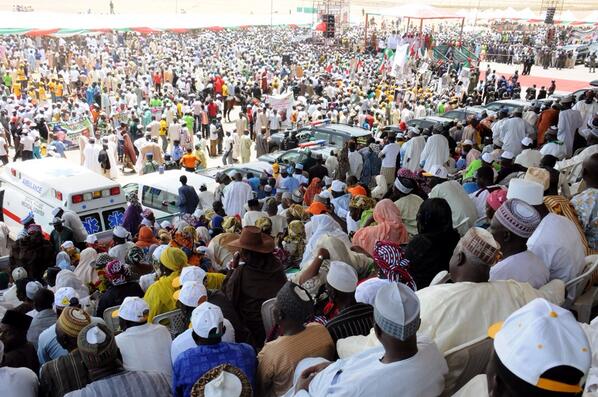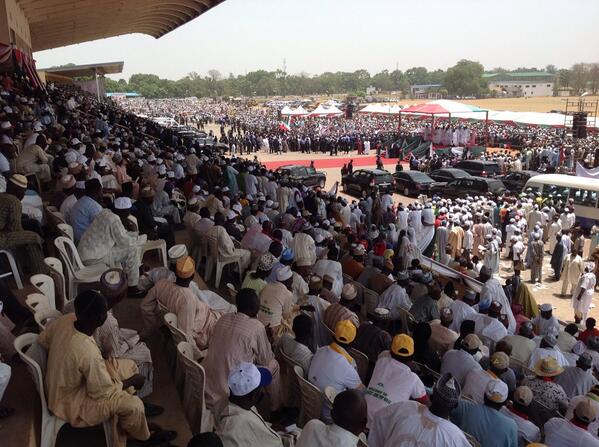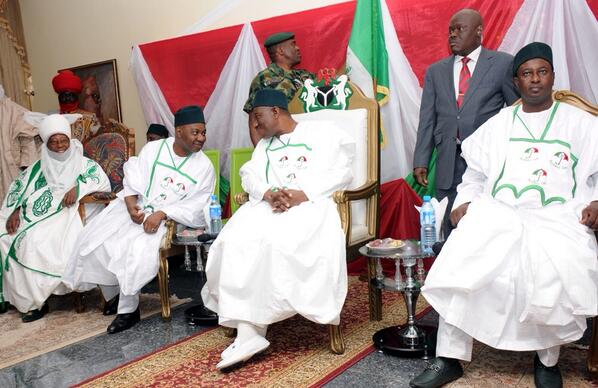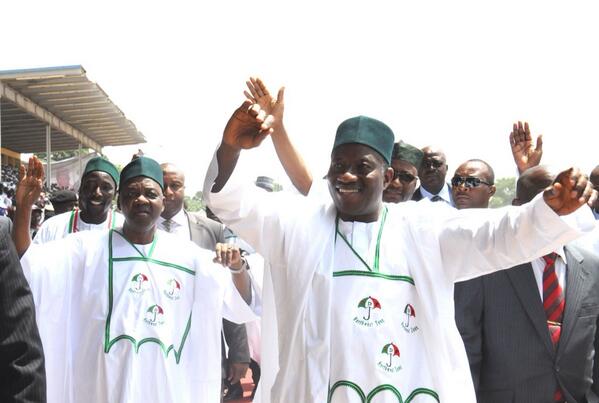After his unceremonious removal from the Central Bank of Nigeria late February, Sanusi Lamido Sanusi still insists that a huge amount of money is missing from the Federal Government coffers and the Goodluck Jonathan Administration owes the country a responsibility to get to the root of the alleged misappropriation.
This New York Times piece examines Sanusi’s call for investigation and allegations of recklessness, incompetence, abuse of mandate and criminal acts of negligence leveled against the Kano prince.
The piece below:
Even in a country where untold oil wealth disappears into the pockets of the elite, the oil corruption scheme he was investigating seemed outsize — and he threatened to lay it bare at a meeting with Nigeria’s top bankers.
The rabble-rouser was none other than the governor of the country’s central bank. Weeks later, however, he was out, fired by Nigeria’s president in an episode that has shaken the Nigerian economy, filled newspapers and airwaves here, and even inspired a rare street demonstration.
The bankers were going to have to open their books, the governor, Lamido Sanusi, warned them at the recent meeting. He wanted to see where the money was going — $20 billion from oil sales that, mysteriously, was not making its way to the treasury, in a country that could soon be declared Africa’s biggest economy and already attracts the most direct foreign investment on the continent, according to the United Nations.
But his suspicions were cutting too close, Mr. Sanusi said — too close to an oil-politics nexus that both feeds the political establishment in Nigeria, in his view and that of analysts, and deprives the country of vital revenue.
The charge of missing oil money is not new in Nigeria. In recent years, government commissions, parliamentary inquiries and civil society groups have all pointed to serious shortfalls in the disbursement of oil revenues. Their findings have been ignored.
This time, the accusations appear not to be going away: Never before has an official at Mr. Sanusi’s level made them.
In interviews here, Mr. Sanusi gave a detailed account of the events that he said led to his ouster on Feb. 20, a dismissal that continues to depress the country’s currency and frighten investors. He said his warning to the bankers had been reported straight back to the threatened seat of power in the country’s capital, Abuja.
It was too much, he said. With his accusations, which outside analysts consider credible, the soft-spoken, bow-tied central banker appeared to have penetrated to the heart of the country’s entrenched corruption problem.
In 2009, Mr. Sanusi took aim at Nigeria’s failing banking sector, shutting down fraudulent banks, uncovering theft that led to an unprecedented conviction, and earning trust in international financial markets. He was named central bank governor of the year by The Banker magazine in 2011, and is a suited-up member of his country’s establishment, as an heir to the position of emir in the ancient northern city of Kano, one of Nigeria’s highest-status designations.
But then he began taking on the government oil agency, which determines whether oil-dependent Nigeria rises or falls. Specifically, he accused the Nigerian National Petroleum Corporation — the agency that buys, sells, regulates and produces the country’s oil — of not turning over earnings to the country’s central bank. The country is Africa’s largest oil exporter, oil prices were steady or rising, yet Nigeria’s financial reserves were falling. It was a mystery. The money was missing. Mr. Sanusi said he feared an eventual collapse of Nigeria’s currency.
Backed by calculations, he presented his findings to a Nigerian Senate committee early in February. “A substantial amount of money has gone,”
Mr. Sanusi said in an interview at the mansion reserved for the country’s central banker, which he will soon have to leave. “I wasn’t just talking about numbers. I showed it was a scam.”
At a time when political energy in Africa’s most populous country is focused on next year’s elections — and staying in power is costly for a governing party that functions as a patronage machine — Mr. Sanusi knew exactly which interests he had menaced, he said. He had been warned to “cool down.
“By making N.N.P.C. an issue now, the source of money for financing elections is threatened,” Mr. Sanusi said, referring to the petroleum corporation. “If this is stopped, there will be no money to finance the elections.”
On the other hand, if it was not stopped, the risk to Nigeria’s economy was grave, the central banker suggested. “It was critical that we stop this hemorrhage,” he said. “Otherwise, we can’t maintain stability. Reserves had gone way down. We would watch the naira collapse,” he said of the nation’s currency.
Alarmed, Mr. Sanusi said, he went in front of Nigeria’s top banking heads for a semimonthly meeting on Feb. 11 and “threatened to open the books of the bankers, to trace the money.” He suspected some were laundering stolen oil money.
“Some of them were not giving information about their accounts,” the central banker said. “I told them I would order a special examination.”
One of the bankers at the meeting said, referring to the Central Bank of Nigeria, “He made it clear to them that the C.B.N. would need to unravel what was going on, and they should cooperate.”
Many of the bankers became angry. “One of us said, ‘What next?’ “ a second banker said. “There was a general heaviness. He spoke tough.” Both bankers requested anonymity.
Panicked, several of the bankers went straight to the government, Mr. Sanusi said. Two of the bankers — he would not identify them — “went and reported to the petroleum minister,” he said. And at that moment, his days were numbered.
“The strategy of the government was to discredit the messenger,” he said. The Nigerian president “doesn’t want me to bring out any more information that would get them into trouble.”
Mr. Sanusi’s account is “untrue,” a spokesman for President Goodluck Jonathan said.
“Mr. Sanusi has been making all kinds of claims to project himself as a victim,” the spokesman, Reuben Abati, said in an email, accusing the former bank governor of “financial recklessness, abuse of mandate, incompetence and criminal acts of negligence.”
Mr. Sanusi has not been charged with any crimes, and the most Mr. Jonathan held him responsible for in a series of counteraccusations that emerged after the bank governor raised an alarm over the oil money was having perhaps “sidestepped civil-service rules.”
Outside analysts appear to be in large agreement that Mr. Sanusi’s claim of vast missing oil revenues is plausible.
Nigeria’s state oil sales “feature undue complexity, extensive discretion and well-documented flaws,” Revenue Watch, a group focused on natural-resource management, wrote in an examination of the central banker’s declarations. “In such a system, the line between mismanagement and corruption is difficult to draw, as shortcomings in process often benefit specific private interests.”
One such “shortcoming” was laid bare by Mr. Sanusi last month to the parliamentary committee: a phony subsidy on kerosene that he determined to be a racket, costing the Nigerian treasury billions of dollars and greatly benefiting what he called a “syndicate” of marketers and unknown others. Mr. Sanusi showed that any official subsidy on kerosene had long since been abolished, that the petroleum corporation was nonetheless selling kerosene to marketers at less than a third of its purchase price on the international market and that the Nigerian marketers were then selling kerosene to the public at prices 300 to 500 percent above what they had paid for it.
“It’s just a big scam,” Mr. Sanusi said in the interview. “The amount is shared by a cabal.”
Though his official term would have ended in June anyway, Mr. Sanusi said, he is challenging his removal in court. In a judiciary that is only lightly insulated from political pressure, the outcome is uncertain, though perhaps not with the wider public. One of the bankers at the Feb. 11 meeting said: “For me personally, I don’t think there’s anything wrong with the position he has taken. We are Nigerians. We owe it to this country that things are run properly.”
One of Nigeria’s leading activists, Tunde Bakare, a founder of the pro-democracy organization Save Nigeria Group, said: “This is going to be tried in the court of public opinion. We can’t wish this matter away. Twenty billion dollars is not going to go away overnight.”
